Nurturing Relationships: A Vital Pillar for Mental Health and Well-Being
Human beings are social creatures, and the connections we form with others play a fundamental role in our overall well-being. Relationships have the power to uplift, inspire, and offer a sense of belonging. However, they can also be a source of stress, particularly when mental health issues come into play. In this article, we will explore the intricate relationship between mental health and our connections with loved ones, friends, and colleagues. We will discuss how healthy relationships can contribute to mental well-being, while also addressing the challenges and strategies for navigating relationships when mental health issues arise.
The Impact of Relationships on Mental Health:
- Emotional Support: Strong relationships provide a vital support system during challenging times. Having someone who genuinely listens, understands, and empathizes can alleviate stress, reduce anxiety, and provide a sense of comfort and validation.
- Reduced Isolation: Isolation and loneliness can be detrimental to our mental health. Meaningful relationships provide a sense of belonging, fostering a feeling of connectedness and reducing feelings of isolation.
- Validation and Self-Worth: Healthy relationships can reinforce our self-worth and validate our experiences, fostering a positive self-image and boosting self-esteem.
- Coping Mechanisms: Supportive relationships offer an avenue for sharing concerns, seeking advice, and learning healthy coping mechanisms. They provide an opportunity for problem-solving, perspective, and emotional regulation.
- Building Resilience: Through the difficulties of relationships, we develop resilience and adaptability, learning to navigate conflicts, setbacks, and disagreements. These experiences can contribute to our overall mental and emotional resilience.
Challenges and Strategies:
- Communication: Effective communication is key to maintaining healthy relationships. Open and honest dialogue about mental health challenges can foster understanding and empathy. Sharing fears, concerns, and boundaries can help loved ones provide the necessary support.
- Education and Awareness: Educating ourselves and our loved ones about mental health conditions can dispel myths and reduce stigma. Increased awareness leads to empathy, compassion, and a more supportive environment.
- Boundaries: Setting and respecting boundaries is crucial for individuals managing mental health issues. Communicate your needs clearly to your loved ones and establish boundaries that promote your well-being.
- Seeking Professional Help: Encouraging loved ones to seek professional help when needed is essential. Mental health professionals can provide guidance, therapy, and support to individuals and couples navigating mental health challenges within relationships.
- Self-Care: Prioritizing self-care is vital for individuals dealing with mental health issues. By taking care of ourselves, we are better equipped to contribute positively to our relationships.
Our relationships significantly impact our mental health and well-being. Nurturing healthy connections can provide emotional support, reduce isolation, and contribute to our overall resilience. However, it’s important to acknowledge the challenges that may arise when mental health issues enter the equation. By fostering open communication, setting boundaries, seeking professional help, and practicing self-care, we can navigate these challenges and build stronger, more supportive relationships. Let us strive to create a world where relationships are a source of solace, understanding, and growth for everyone, regardless of their mental health journey.
